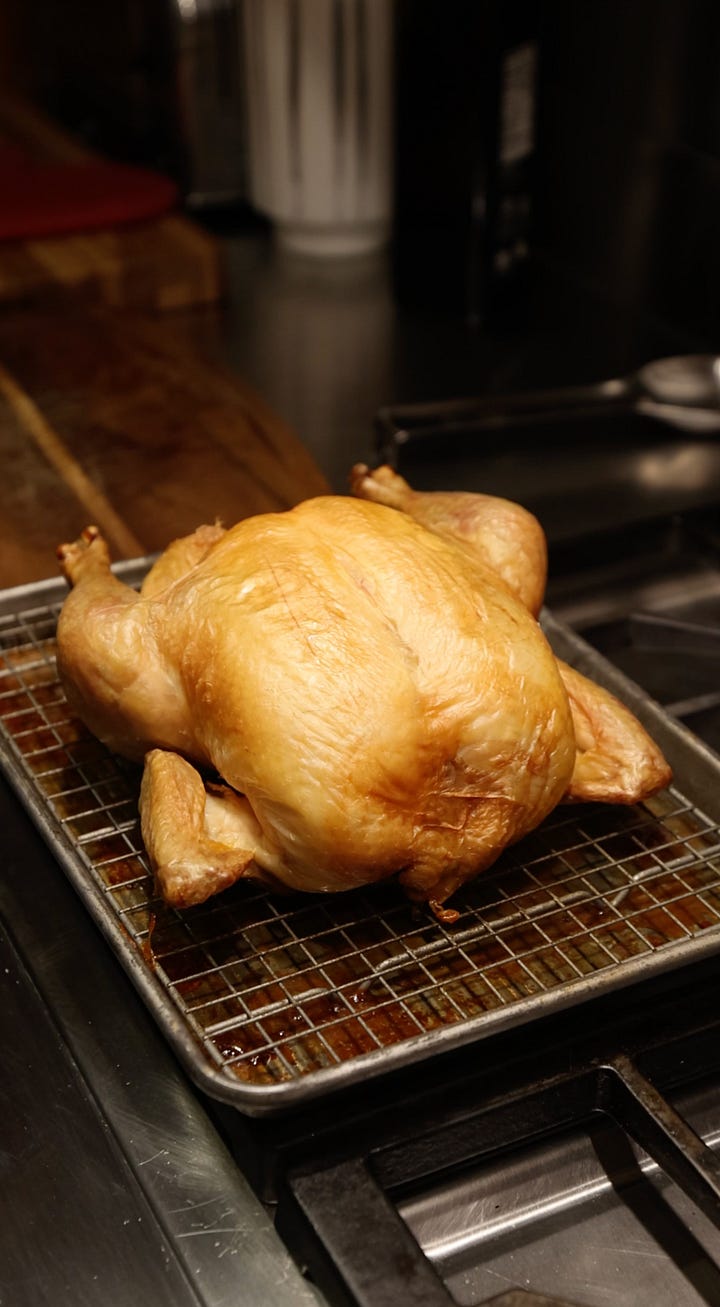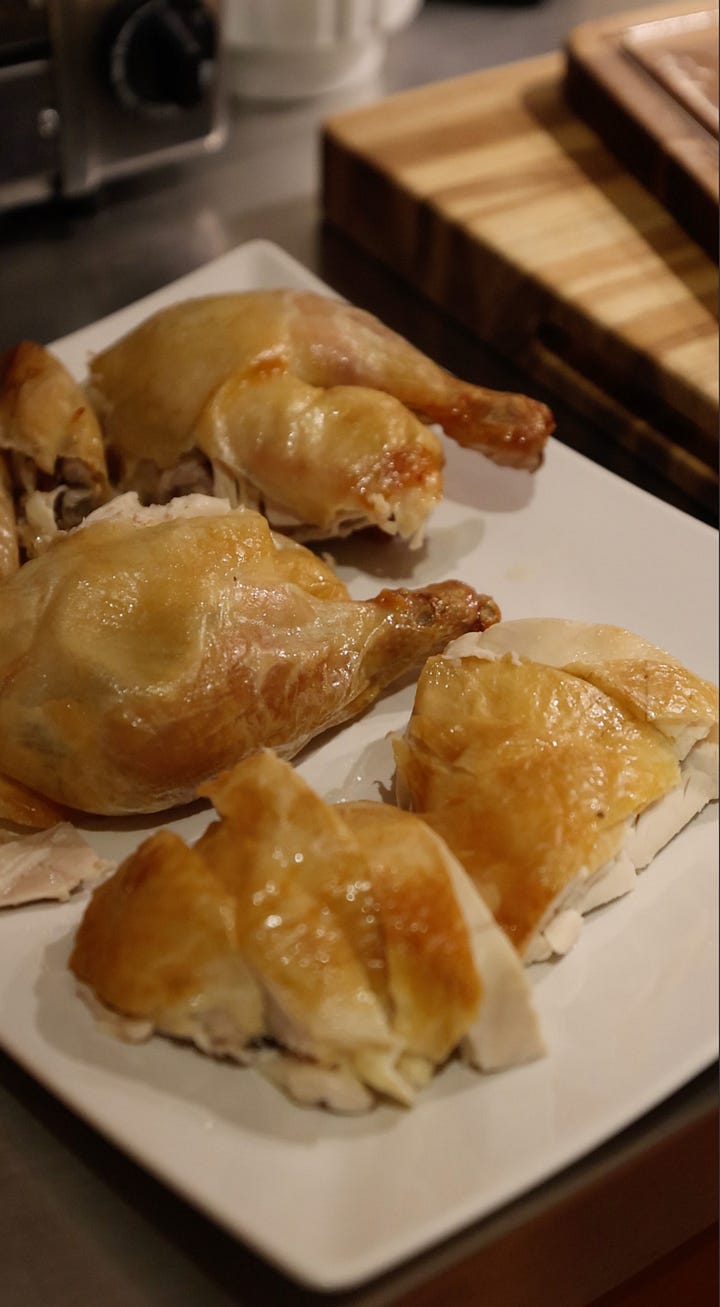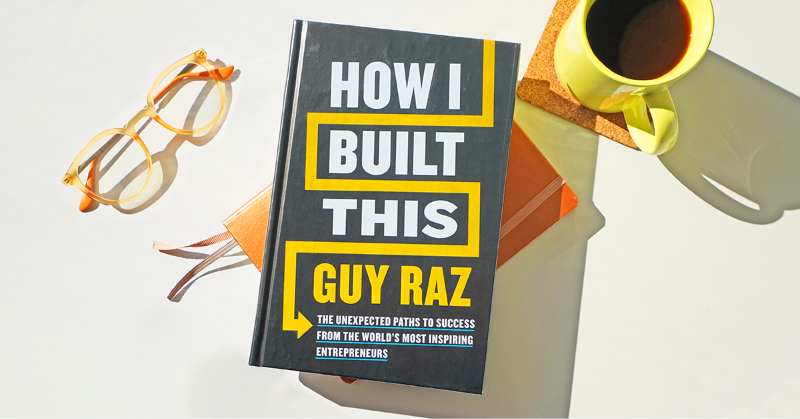Last weekend, I took a bike ride with my kids here in northern California. The rack on one of the bikes was rattling so bad, we had to make a pit stop at a bike shop to see if we could get a new screw to fix it.
I explained the problem to the owner who was standing behind the register. I assumed he would offer to fix it for a price. Fair enough, I was prepared to pay.
Instead, he threw a box of used screws on the counter and said “knock yourself out.”
After some digging, I found the screws and wheeled my bike into the shop to affix them.
I could sense the owner was not happy. Still, I was committed to buying something in the store as a show of good faith. I didn’t have a hex wrench on me and asked to borrow one so I could tighten the screw.
“No tools,” he growled.
At that moment, I understood exactly what was happening. So I said, “hey, I’m not here to take advantage of your business. I want to support you. I’m willing to pay what you charge for repairs. In fact, I need a new pump…can I take that one?”
He was flummoxed. Clearly I struck a nerve.
“So why did you buy that bike instead of one from me?” he responded.
Well, it turns out the bike I had that day is a very old bike I bought many years ago that’s on its last legs. So I couldn’t quite answer his question with a simple answer but I did ask one:
“How is business these days?”
Terrible, he said. We’re down 40% from last year.
“Why do you think so?” I asked.
He started to rattle off a number of reasons: everything from inflation to the cost of doing business in California to taxes to state and local regulations that make it so hard and so costly to comply and to an overall decline in spending power among the people in the community.
I listened and nodded in agreement, feeling his frustration. I shook his hand, bought a pump and offered to pay him for his services (he ended up repairing the bike for free) and promised to support his business.
It got me thinking a lot about the challenges of running a small business in America (and certainly in California!) these days.
Small businesses contribute around 43% to GDP in the US. That is massive! They also employ millions of people. Yet it’s becoming harder and harder for small businesses (certainly in California) to weather economic storms.
Every day I read (or know) about restaurants and mom-and-pop clothing stores and other businesses that can’t keep up with the increasing rent, higher labor costs, food and supply costs, etc…
And sometimes, well-meaning government policies or interventions can have really deleterious effects on people’s livelihoods.
Take alcohol.
Now, I’m not a huge drinker. I probably have one, sometimes two glasses of wine a week. But once in a while, on a special occasion with friends, I might have three or four.
Recently a surgeon general’s report came out about the dangers of alcohol and the connection between ANY consumption and early death. Yes, early death!
The report connects any alcohol consumption to cancer, diabetes, heart disease and also the possibility of dying in a car crash or other alcohol-related accidents.
This report is already having a significant impact on the wine industry here in California. Most California winemakers are small business owners who work really hard to make a modest living. And many are wondering whether they’ll make it through the year.
Now there’s a gaping problem with reports like these. For starters, we don’t know WHO is being studied. What are their overall dietary habits? What kind of alcohol are they drinking (spirits? beer?) If even moderate drinking (1-2 drinks a week) is dangerous, are those same people also avoiding processed foods and other inflammatory foods that might be more culpable? None of these questions were answered.
It’s a little like meat consumption. Most studies will tell you that if you eat too much red meat, you are more likely to die early. But are those studies measuring people who might generally consume fast food and highly processed meat? Or are they measuring people who might only eat grass-fed beed and avoid sugar and starches entirely? Well, I think you can guess the answer.
While I would never suggest that high alcohol consumption is good (and by the way, I don’t drink anything other than an occasional tequila/soda and a glass or two of wine) I am a big believer that wine—in particular—has, for thousands of years, fostered human connection.
Go check out the Bible! Noah (of the Ark) was the first winemaker! (He was the first person to plant grapes!) Humans have been fermenting and distilling fruits and grains for thousands of years.
These beverages (in limited and very moderate amounts) bring people together. They can facilitate conversations. They can make us feel slightly more at ease. Most people gather together with others in community when they have a glass or wine.
I’m not saying EVERYONE needs to drink or should. But what I am saying is that if other people DO consume a few glasses of wine each week, surely the benefits must be measured as well.
We know that human connection—human relationships—are also critical to longevity and a good and balanced life. And if a glass of wine is part of that equation…well, I’m willing to take the risk.
Wine, in particular, is something that tells you about a very specific place. You can’t make Burgundy in Napa and you can’t make Sonoma Chardonnay in South Africa. But in all of these wine-growing regions—Chile, Argentina, France, Spain, Italy, Germany, California, Australia, etc—you can experience something that can’t be replicated anywhere else.
And that is also worth a LOT these days.
I was recently in Miami where I visited the beautiful Design District. It is extremely impressive and I had a wonderful time. But aside from the architecture and “vibe”—the shops are the same as the ones I’ve seen in Milan and Paris and London and Dubai and San Francisco.
Fashion, luxury goods, consumer products—there’s virtually no difference in what you can get in most cities around the world. It’s why I’m always surprised to see people clutching Hermes bags in Las Vegas or Honolulu because the brand doesn’t tell you anything about those cities.
But wine does. It really does tell you about a place. And these are businesses worth preserving and supporting.
The point of this stream-of-consciousness rant is to highlight the importance of putting the interests of small business owners front and center. Most of the “big” businesses I feature on How I Built This started small. And so much of the innovation we see in America starts with small businesses.
OK…onto the show for this week:
If you are in the middle of building something (or thinking about it) brace yourself because it MIGHT NOT WORK.
And that might be a VERY GOOD SIGN to try something different.
This is what happened to Ben Leventhal who co-founded the reservation app Resy. The initial idea was to leverage demand for restaurants at peak times and charge customers a dynamic price to book the table. Sort of like dynamic pricing for an Uber or Lyft.
Ben thought it would be a win/win for customers and restaurants. As a customer, you could pay more for a hard-to-book table on say, Saturday night and guarantee a seat. For the restaurant, they not only got the customer but also a piece of the sale of the reservation.
Unfortunately, the New York media (and consumers) HATED this. The backlash was so spectacular that it almost tanked the business.
Thankfully, Ben was smart enough to make a pivot and come up with a different idea—an idea that would focus on data to help restaurants manage their customer relationships.
If you feel like your idea might not be getting traction, this episode is a really good one for you!
– Guy
What I’m Cooking


2-ingredient Roast Chicken
1 3-4lb chicken
3 tablespoons Kosher Salt
Rub salt all over chicken and inside cavity. Stick the chicken on a roasting rack on a sheet pan (very important! air needs to circulate around the chicken) Put the chicken in the fridge and let it sit, uncovered, for 2-3 days days. The skin will dry out and appear very taut and almost translucent. At that point, roast at 350F for 1.5 hours (2 hours if, like my wife, you insist on very well done chicken) Let it rest for 20 minutes. And you will have a perfect, juicy, salted, crisp-skin roast chicken.
On the Podcasts This Week!
Resy and Eater: Ben Leventhal’s Recipe for Reinvention
Ben Leventhal believes that “restaurants are magic.” He built his entire career around the hospitality and connections that restaurants offer to the world.
In the early 2000s, he co-founded Eater, a blog that reimagined food media. Then in 2014, he helped start Resy – a bold new idea for restaurant reservations. And now in the mid-2020’s he onto yet another venture in the restaurant industry, this time with the loyalty platform Blackbird Labs.
As I recap Ben’s story, there is a simple lesson here: focus. Let me explain.
While Ben’s ventures have varied: from blogs to web apps and now to a modified version of crypto. They have all been focused on ONE thing: restaurants.
Now, I’m not saying you can’t expand your interests or venture into other, unrelated, projects. You most certainly can (and should!) But I also think there’s a lesson to be learned about focusing your efforts. Part of why Ben has been so successful, is that he figured out a narrow niche (restaurants) and focused on creating or building solutions tailored to that narrow niche.
There’s a ton more lessons in the episode and I’m excited for you to listen. But know this… Ben is an innovator. He’s reinvented himself over and over again, across multiple decades. It’s exciting and inspiring. Enjoy!
HIBT Advice Line: Going All-In
This week on the Advice Line, Simple Mills founder Katlin Smith joins Guy Raz to help three early-stage founders navigate the challenges of scaling their businesses.
First up, Scott: How do I scale my small business?
Scott’s company, Upcycle Foods Co., turns spent beer grains into snacks like pretzels and muffins. While farmers’ markets love his pretzels, scaling the business has hit a snag. We give him some simple advice: adapt, pivot, and persist!
Next, Tim: How do I know when it’s time to go “all-in” on my business?
Tim started Grumpy Dad Sauce Company from a backyard experiment and now dreams of scaling his hot sauce to support his family. Going “all-in” is a really tough question to answer. But we think he can do both: dive full time into the business while maintaining security for his lifestyle!
Finally, Marissa: How should I market my unique product?
Marissa’s Sweet Paws brand offers innovative silicone pet products, including a versatile bag opener. While the product has broad applications, she’s unsure where to focus her marketing efforts. Kaitlin gives her some timely advice: focus on where your audience already shops!
Whether it’s pivoting products or committing fully to a dream, scaling often requires bold decisions, strategic thinking, and adaptability. Tune in to hear more!
If you would like to be featured on an upcoming episode, call and leave a 1-minute message at 1-800-433-1298 or send a voice memo to hibt@id.wondery.com
Rainn Wilson on Creativity, Comedy, and Finding Inner Peace
You definitely know him as Dwight Schrute—the beet farmer turned paper salesman who stole every scene on The Office. But Rainn Wilson’s story goes far beyond his iconic role.
In this episode of The Great Creators, Rainn shares his deeply personal journey: from the anxiety and self-doubt of his early acting days to the spiritual awakening that transformed his life and career.
His failures, including a rocky Broadway debut, taught him to embrace his inner “weirdo” and lean into his authentic self. It’s a lesson that helped him bring Dwight to life in a way no one else could.
This episode is funny, moving, and packed with insights on how embracing vulnerability and authenticity can unlock your creative potential.
Watch it on YouTube:
Peloton's Dara Treseder: Dreaming Big, Building Teams
Dara Treseder’s career is a testament to dreaming big—and working hard to make those dreams a reality.
Growing up in Nigeria, Dara’s mother encouraged her to follow her ambitions, a message that eventually led her to Harvard and Stanford, and later to the top ranks of marketing.
In this conversation (from 2021), Dara reflects on her path from a “failed career in finance” to becoming a marketing leader at some of the top companies in the world like Apple, Goldman Sachs, and Peloton. As SVP of Global Marketing and Communications at Peloton, Dara reshaped the way we think about fitness culture, emphasizing connection, storytelling, and community.
Wherever her journey has taken her, she’s implemented one of her core beliefs: building the right team is the best way to drive change.
Science Podcasts for Kids!
The Mystery of Blood Falls!
This week on Wow in the World, it’s Grandma G-Force’s birthday, and she’s got one epic wish—to see the eerie and elusive Blood Falls! But there’s a catch: it’s located in Antarctica, one of the coldest places on earth!
Bundle up for a frosty adventure to uncover the secrets of what makes this waterfall so red! The answer lies beneath the ice: ancient, iron-rich water oxidizing as it meets the air—like a giant, natural science experiment!
What’s in a Name?
This week on Two Whats?! And a Wow!, we’re uncovering the surprising stories behind NAMEs!
What’s in a name? Well, everything! Do you know the original name for the planet Uranus? And do you know where the Ford Mustang got its name?
Tune in for some other wacky facts about name in the latest episode of Two Whats and a Wow!
From the Archives!
Simple Mills: Katlin Smith
When Katlin Smith launched Simple Mills in 2012, her goal was to make healthy eating more accessible and delicious.
Inspired by her own health journey, she started experimenting with grain-free baking mixes in her kitchen, using ingredients like almond flour and coconut sugar. With no formal culinary training and a full-time consulting job, Katlin relied on sheer grit and creativity to build her business.
Her big break came when a local Whole Foods buyer placed an order for 12 bags of her muffin mix. From there, Katlin went all-in: hand-mixing ingredients, loading up rental cars, and personally pitching her products to shoppers.
Today, Simple Mills is a household name in the natural foods space. They have cookies, crackers, and other paleo-friends treats in thousands of stores nationwide. Oh and in January of 2025 (like just a few weeks ago!), they were acquired by Flowers Foods for an astonishing $795M!
Serial Entrepreneur: Gary Vaynerchuk
Gary Vaynerchuk’s journey from a young baseball card hustler to a global media mogul is a masterclass in relentless self-belief.
Growing up in New Jersey as a Belarusian immigrant, Gary’s entrepreneurial spirit started early, flipping cards at a local mall for thousands of dollars in profit as a teen.
After joining his family’s wine business, Gary spotted an opportunity to harness the power of the internet. In the early 2000s, he launched Wine Library TV, a raw and unfiltered wine review series on YouTube. His unapologetic, over-the-top style turned wine culture on its head, helping his father’s store grow from $3 million to $60 million in revenue.
As you know… Gary didn’t stop there. He would go on to found VaynerMedia, build his social following to multiple millions, and continue to inspire regular people to create every day.
See you next time!
What do you want more or less of?
Just send a tweet to @guyraz or a message on IG to @guy.raz or LinkedIn and put #GuyRazNewsletter at the end so I can find it.














